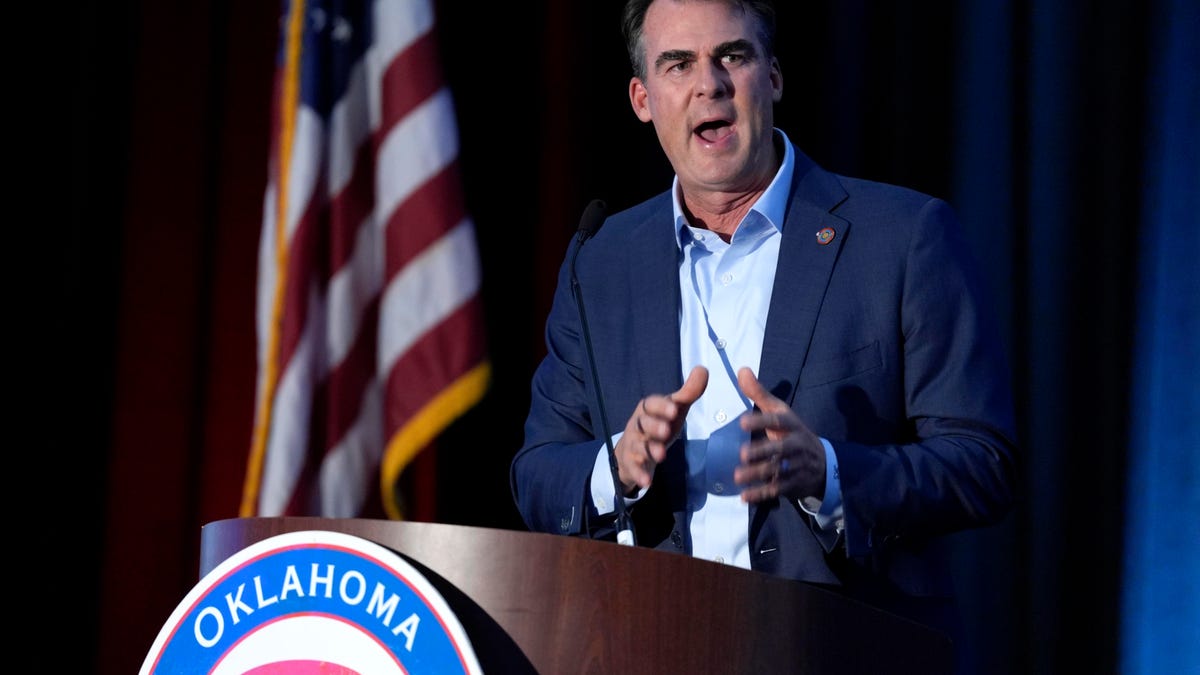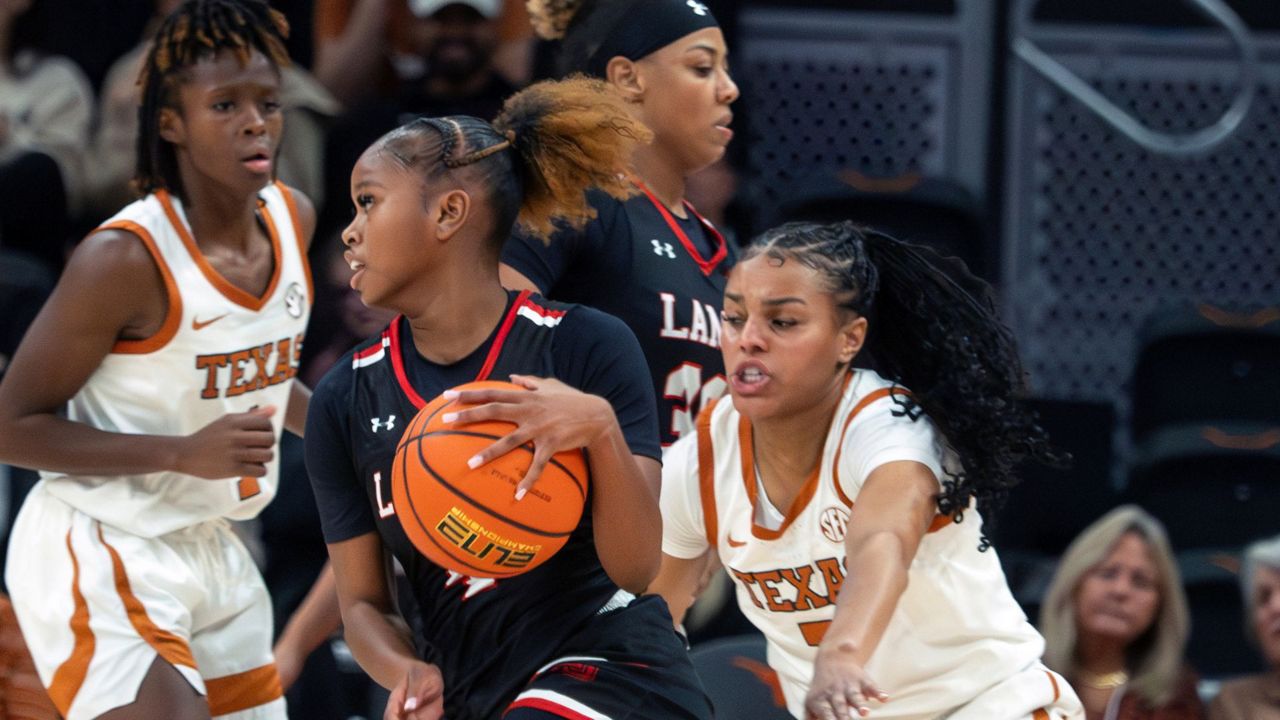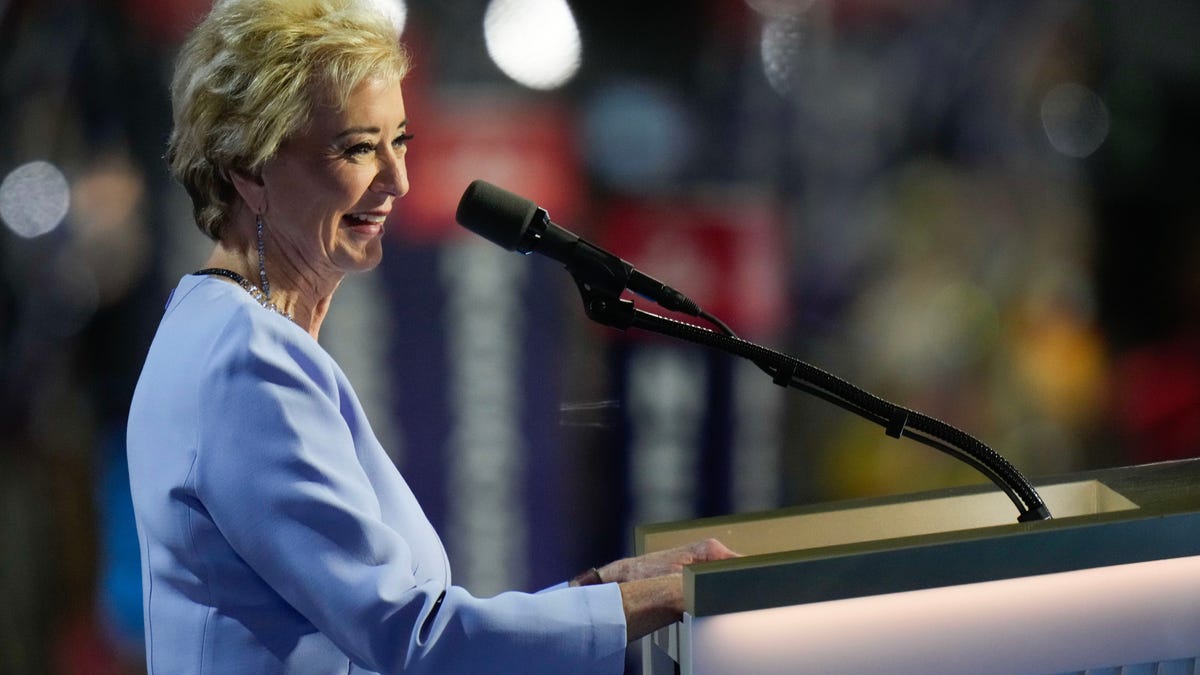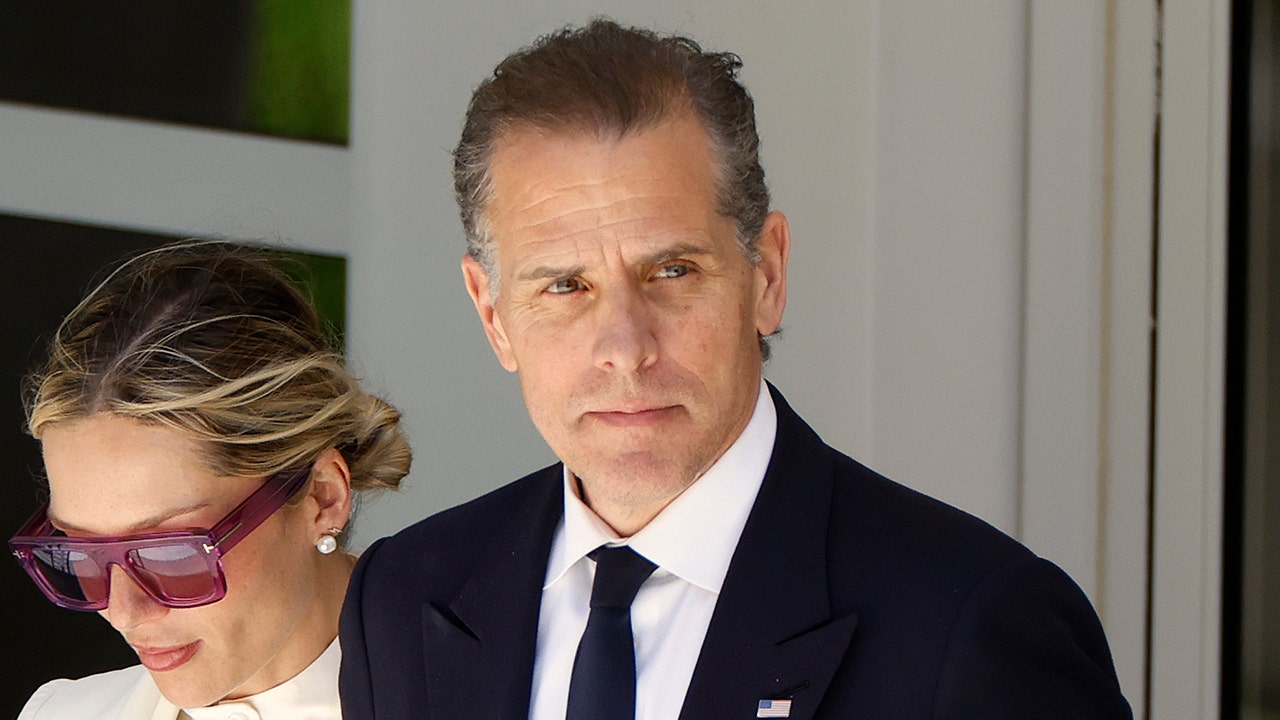Florida
A DeSantis Speech Too Dangerous to Teach in Florida

Florida Governor Ron DeSantis does not often find himself attempting to deliver a unifying message, but in the aftermath of the killing of three Black Floridians by an alleged white supremacist in Jacksonville last week, he tried.
“What he did is totally unacceptable in the state of Florida,” DeSantis said during a speech at a vigil for the three victims, A.J. Laguerre, Angela Michelle Carr, and Jerrald Gallion, last Sunday. “We are not going to let people be targeted based on their race.”
That’s a welcome message, but it didn’t go over well. The Associated Press reported that DeSantis “was loudly booed” as he addressed the vigil. Among the potential reasons is that DeSantis has spent much of his time in office cracking down on “wokeness,” to the delight of his conservative fans. The state has passed laws censoring classroom instruction that might lead students to conclude that racial discrimination, against Black Americans in particular, persists into the present, even as it engages in such discrimination in broad daylight.
One of those laws is the Stop WOKE Act, which prohibits any instruction that, as the Miami Herald reported, “could prompt students to feel discomfort about a historical event because of their race, ethnicity, sex or national origin.” In fact, one could argue that Florida law now prohibits DeSantis’s speech itself from being discussed in Florida schools.
Jacksonville Sheriff T. K. Waters was clear that the shooter was a “madman” who “hated Blacks, and I think he hated just about everyone that wasn’t white.” The gunman was also the latest white supremacist to leave behind a manifesto, which the police have not released.
If Florida teachers allowed their students to read DeSantis’s speech, they might ask about the motive for the attack. A teacher who explained that the shooter was motivated by white-supremacist hatred would risk making a white student feel discomfort, “guilt, anguish, or other forms of psychological distress,” as the law itself puts it. If the teacher tried to put the speech in context, and attempted to explain the ideological tenets, origins, and history of white supremacy in the United States, they would increase that risk. A teacher could not explain why someone would, as DeSantis put it, target people “based on their race,” because it would lead to answers about the history of Florida and America that the governor and other Republicans would prefer students not learn, lest they have nonconservative thoughts.
The teacher could not mention that Florida had one of the highest rates of lynching per capita during the Jim Crow era, more than 300 such killings from 1877 to 1950. They could not discuss that the purpose of such killings was to terrorize Black Floridians into accepting segregation and subjugation. They would be unable to mention Harry T. Moore, Willie James Howard, or the Newberry Six. Under the law, teachers who did so could end up in conversations that would put them at risk of losing their teaching certificate. After all, discussing such subjects might hurt someone’s feelings. In short, the safest thing would be not to discuss the speech at all.
That a Florida governor might have made it illegal for an educator to explain the context of his own speech may sound ridiculous, but these are legal considerations that educators have to take into account when laws ban certain ideas from being discussed. Such prohibitions have a chilling effect, and most institutions are risk-averse when it comes to litigation. Indeed, that is the idea behind these gag measures, to chill left-wing or “woke” speech about topics such as racial discrimination, gender, and sexual orientation. There’s no explicit exception for “when the governor wants to try to be magnanimous in the aftermath of a racist massacre” in the text of the law.
If this still seems improbable, the Herald has already documented similarly absurd exchanges over the state’s curriculum. The report illustrates how state officials objected to the idea that enslaved people “had no wages to pass down to descendants, no legal right to accumulate property, and individual exceptions depended on their enslavers’ whims,” because it might be “promoting the critical race theory idea of reparations.” Primary source documents from Black antislavery activists were described as including “content prohibited under Florida law.” They worried that a unit on the abolitionist movement was not “factually inclusive or balanced”; a “nonwoke” curriculum, I suppose, places antislavery and proslavery principles on the same moral plane. Officials also complained that material explaining that the growth of the Black middle class was hampered by mid-century discrimination ran afoul of state rules, because “it failed to offer other reasons outside of systemic racism and discrimination for the wealth disparity between Black Americans and other racial groups.”
These education gag laws are intended to render the American past illegible, because of the risk that someone might reach the conclusion that racial discrimination continues to be a problem in the present that Americans are obliged to confront. They make education impossible by censoring the historical record in favor of the political conclusions their authors want students to draw. They make it illegal to teach facts if conservatives find those facts offensive.
It is a small irony that these laws also arguably bar teachers from talking about a speech in which DeSantis was trying to condemn racial discrimination rather than hide it behind a veil of superficial patriotism. For those who argue that the law was not intended to do this, well, an entire academic discipline explores how laws written one way can be enforced in another. I won’t bring it up here, though, because it’s illegal to teach in the “free state” of Florida.

Florida
Florida Gators Myles Graham has Season-Best Performance Against LSU

The Florida Gators have been plagued by the injury bug all season. It’s taken a few key players on both sides of the ball each week and left them trying to fill the void with others.
However, they have tons of depth on this roster and it showed once again on Saturday. While the Gators were without starting linebacker Grayson Howard against LSU, true freshman Myles Graham made sure there was little drop-off in talent on the field.
According to PFF, Graham was graded out as the best true freshman linebacker in the country in Week 12 against the Tigers with a PFF grade of 77.6. He accounted for seven tackles in this game and five of them were assisted while the other two were solo. His seven tackles were also his highest in a single game this season.
Highest Graded True Freshman LB from Week 12:
🐊 Myles Graham, Florida: 77.6@GatorsFB pic.twitter.com/bV1ij23LLO — PFF College (@PFF_College) November 19, 2024
Additionally, PFF gave him an 82.7 tackling grade in this contest, which is the highest he has received all season and also the highest of any Gator defender on Saturday.
The young star in the making has been shining over these past few weeks as well, so it is no surprise seeing him perform like this.
From the first week of the season against Miami to the Tennessee game near the middle of October, Graham only totaled five tackles and all of them were assisted. In the last four though, he has 17 tackles, (10 assists and seven solo) one tackle-for-loss and one sack.
It is unclear yet as to when Howard will be back for the Gators. Like every week prior, we’ll have to wait for the availability report for that. But if his absence extends into this weekend, then the Gators will have a dependable replacement in Myles Graham.
Florida
Florida professor finds evidence that ancient Egyptians drank hallucinogenic cocktails
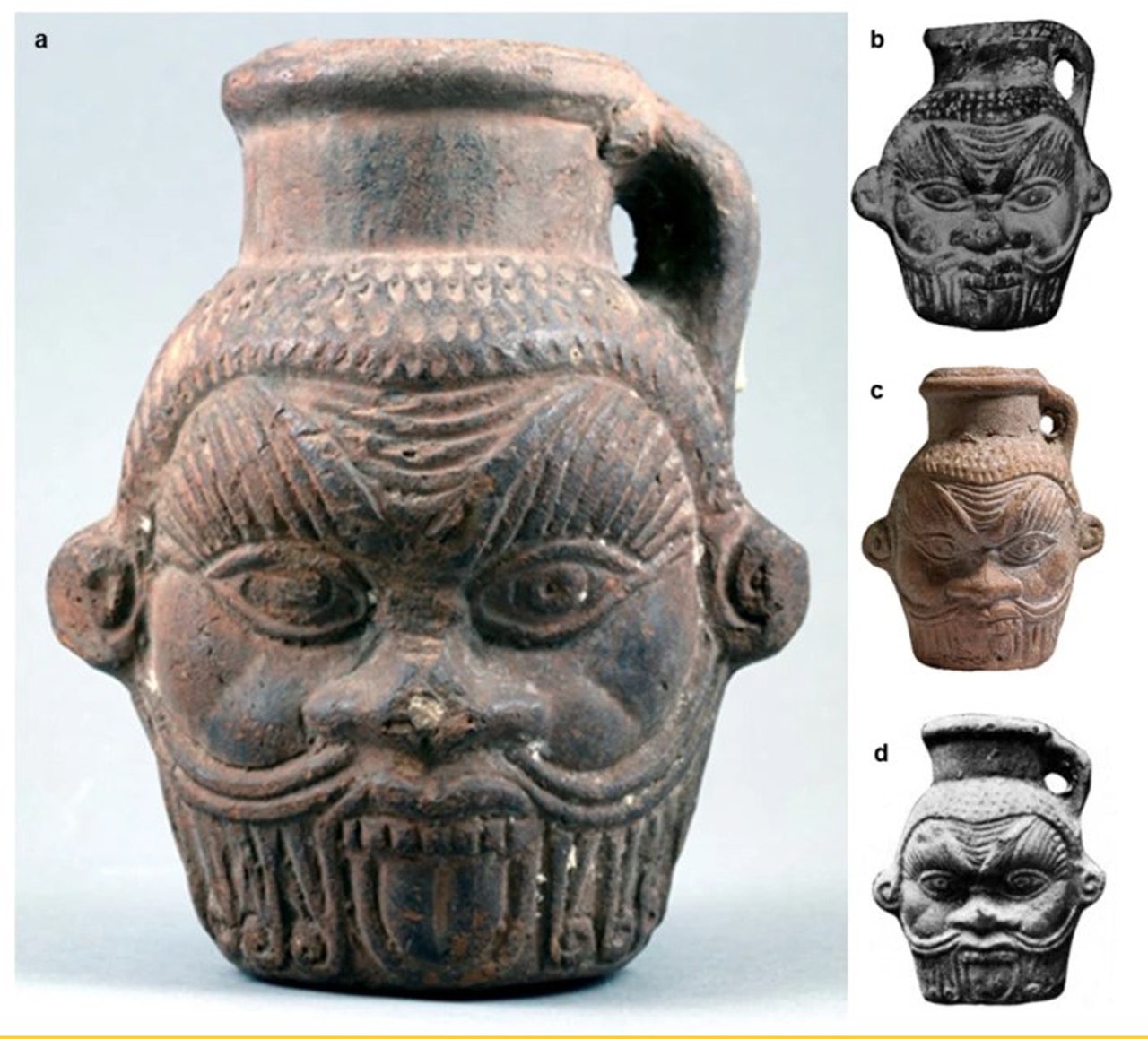
A professor at the University of South Florida (USF) analyzed a 2,000-year-old Egyptian mug and discovered that the ancient object once held a psychedelic concoction used in a magical ritual.
The mug studied was an Egyptian Bes mug donated to the Tampa Museum of Art in 1984. The mug is one of few still in existence.
Research into the rare mug began in 2021, USF professor Davide Tanasi told Fox News Digital via email.
ROYAL FAMILY’S FAVORITE AMERICAN FOODS AND ‘HUMBLE’ HOT DOG’S IMPORTANT ROLE IN HISTORY REVEALED
These mugs displayed the head of Bes, according to the press release.
Many of Bes’ worshipers were ancient Egyptian newlyweds, according to the Rosicrucian Egyptian Museum, as the god of fertility and childbirth.
Drinking vessels shaped into the likeness of Bes, an ancient Egyptian deity. (Tampa Museum of Art; Allard Pierson Museum/Amsterdam/Stephan van der Linden)
Tanasi and his team scraped a sample of tiny particles from inside the vase to analyze.
The team originally thought the vessel would have contained an alcoholic beverage, but what they ended up finding was far different from their original theories.
Advanced DNA and chemical analysis found the vase contained what Tanasi described as a “cocktail” of different components.
‘PASTA QUEEN’ FOOD LOVER REVEALS DRAMATIC JOURNEY TO CHEF, MOM AND AUTHOR
Included in the mix was an alcoholic base, Tanasi told Fox News Digital, with flavoring agents like honey and or royal jelly sesame seeds, pine nuts or oil from Mediterranean pine and licorice.
Also included in the mix were several different medicinal and psychotropic substances, including Syrian rue, blue water lily and cleome species, Tanasi said.

The analyzed mug was donated to the Tampa Museum of Art in 1984. (Fabiola Santiago/Miami Herald/Tribune News Service via Getty Images/File)
Human fluids including blood, breast milk and mucus were also part of the concoction, according to Tanasi.
The bodily fluids in particular served as a large indicator that the mix was used in ancient ritual practices, according to the research.
“It was then a magical potion, meant to inebriate, satiate and induce hallucinations,” Tanasi said of the mixture.
For more Lifestyle articles, visit www.foxnews.com/lifestyle
This first-of-its-kind finding provides physical evidence that mirrors written records and myths about ancient Egyptian rituals.
“At this point, we believe that the psychotropic substances found in it were used for ‘incubation rituals’ connected with the cult of Bes,” Tanasi told Fox News Digital.
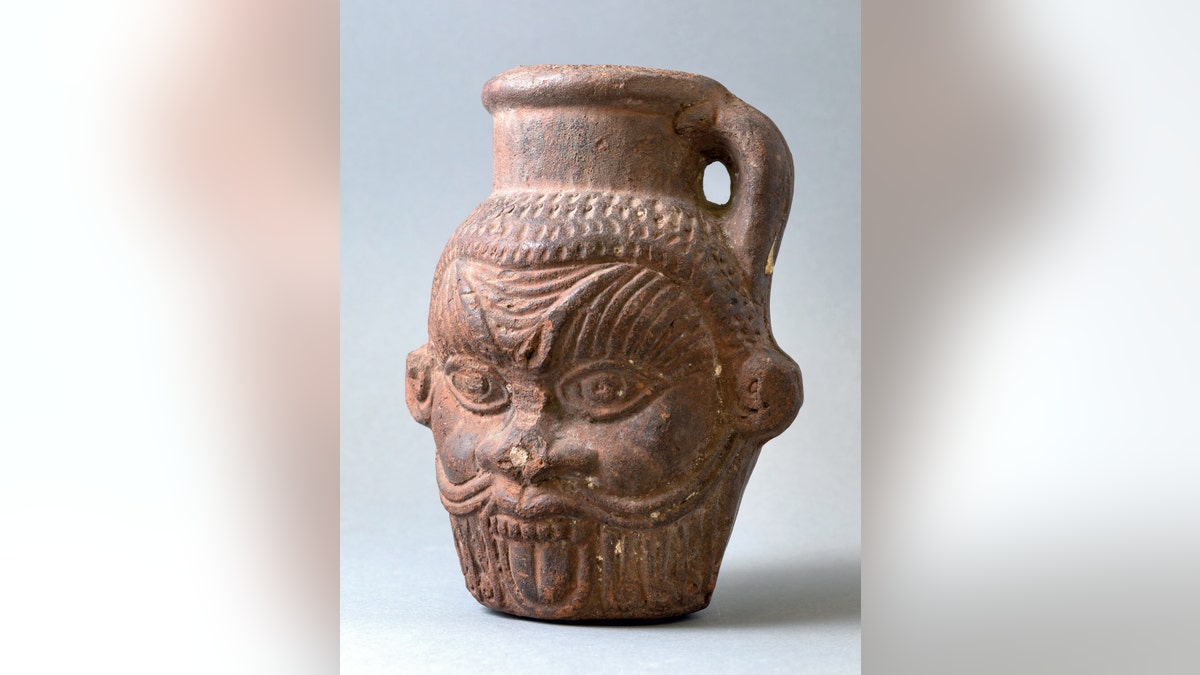
A drinking vessel is shown in the shape of Bes’ head. (Tampa Museum of Art/Philip LaDeau)
“Incubation rituals are religious practices where people sleep in a sacred space to receive a dream from a deity that may provide healing or an oracle,” Tanasi said.
“In [the] Greek cult of Asklepios, god of medicine, sick worshipers had to spend the night in the sanctuary and wait to be visited by the god curing them during their dreams. Those dreams were triggered by drugs (pharmaka) dispensed by the priests. So, our research confirms an earlier practice that has later comparisons in several other cultures.”
CLICK HERE TO SIGN UP FOR OUR LIFESTYLE NEWSLETTER
The mug is now on display at the Tampa Museum of Art as part of its “Prelude: An Introduction to the Permanent Collection” exhibit.
As far as further research goes, Tanasi said he hopes similar analysis continues.
CLICK HERE TO GET THE FOX NEWS APP
“To prove that the concoction that we found was the base recipe for a standard beverage administered during the rituals in honor of Bes, we plan as [a] next step to hopefully carry out the same analyses done on the example from the Tampa Museum of Art on other examples of [the] Bes Mug, kept at the Allan Pierson Museum in Amsterdam,” he said.
These, he added, “were produced with the same mold used for the Tampa one, to assess whether there was one and only recipe for this magical potion for Bes.”
Florida
Florida Lottery Powerball, Cash4Life, Fantasy 5 results for Nov. 18, 2024

Powerball, Mega Millions jackpots: What to know in case you win
Here’s what to know in case you win the Powerball or Mega Millions jackpot.
Just the FAQs, USA TODAY
The Florida Lottery offers several draw games for those hoping to win one of the available jackpots. Here’s a look at the winning numbers for games played on Monday, Nov. 18, 2024
Winning Powerball numbers from Nov. 18 drawing
27-31-41-52-69, Powerball: 26, Power Play: 3
Check Powerball payouts and previous drawings here.
Winning Powerball Double Play numbers from Nov. 18 drawing
02-06-24-36-43, Powerball: 13
Winning Cash4Life numbers from Nov. 18 drawing
02-15-28-29-40, Cash Ball: 01
Check Cash4Life payouts and previous drawings here.
Winning Fantasy 5 numbers from Nov. 18 drawing
Midday: 09-10-14-17-19
Evening: 08-19-22-26-34
Check Fantasy 5 payouts and previous drawings here.
Winning Cash Pop numbers from Nov. 18 drawing
Morning: 09
Matinee: 04
Afternoon: 08
Evening: 06
Late Night: 03
Check Cash Pop payouts and previous drawings here.
Winning Pick 2 numbers from Nov. 18 drawing
Midday: 5-2, FB: 3
Evening: 6-7, FB: 5
Check Pick 2 payouts and previous drawings here.
Winning Pick 3 numbers from Nov. 18 drawing
Midday: 7-1-5, FB: 3
Evening: 5-7-9, FB: 5
Check Pick 3 payouts and previous drawings here.
Winning Pick 4 numbers from Nov. 18 drawing
Midday: 2-8-5-7, FB: 3
Evening: 2-4-7-7, FB: 5
Check Pick 4 payouts and previous drawings here.
Winning Pick 5 numbers from Nov. 18 drawing
Midday: 5-0-7-6-6, FB: 3
Evening: 9-1-8-2-9, FB: 5
Check Pick 5 payouts and previous drawings here.
Where can you buy Florida Lottery tickets?
Tickets can be purchased in person at any authorized retailer throughout Florida, including gas stations, convenience stores and grocery stores. To find a retailer near you, go to Find Florida Lottery Retailers.
Feeling lucky? Explore the latest lottery news & results
Are you a winner? Here’s how to claim your prize
- Prizes of $599 or less: Claim at any authorized Florida Lottery retailer or Florida Lottery district office.
- Prizes for $600 to $1 million: Must be claimed in person at any Florida Lottery district office for games that do not offer an annual payment option.
- Prizes greater than $1 million and all prizes with an annual payment option: Must be claimed at Florida Lottery headquarters, except Mega Millions and Powerball prizes, which can be claimed at any Florida Lottery district office.
You also can claim your winnings by mail if the prize is $250,000 or less. Mail your ticket to the Florida Lottery with the required documentation.
Florida law requires public disclosure of winners
If you’re a winner, Florida law mandates the following information is public record:
- Full name
- City of residence
- Game won
- Date won
- Amount won
- Name and location of the retailer where the winning ticket was purchased.
When are the Florida Lottery drawings held?
- Powerball: 10:59 p.m. Monday, Wednesday and Saturday.
- Mega Millions: 11 p.m. Tuesday and Friday.
- Florida Lotto: 11:15 p.m. Wednesday and Saturday.
- Jackpot Triple Play: 11:15 p.m. Tuesday and Friday.
- Cash4Life: 9 p.m. daily.
- Fantasy 5: Daily at 1:05 p.m. and 11:15 p.m.
- Cash Pop: Daily at 8:45 a.m., 11:45 a.m., 2:45 p.m., 6:45 p.m. and 11:45 p.m.
- Pick 2, 3, 4, 5: Daily at 1:30 p.m. and 9:45 p.m.
This results page was generated automatically using information from TinBu and a template written and reviewed by a Florida digital producer. You can send feedback using this form.
-

 News1 week ago
News1 week agoHerbert Smith Freehills to merge with US-based law firm Kramer Levin
-
/cdn.vox-cdn.com/uploads/chorus_asset/file/25724877/Super_Nintendo_World.png)
/cdn.vox-cdn.com/uploads/chorus_asset/file/25724877/Super_Nintendo_World.png) Technology1 week ago
Technology1 week agoThe next Nintendo Direct is all about Super Nintendo World’s Donkey Kong Country
-
Business6 days ago
Column: OpenAI just scored a huge victory in a copyright case … or did it?
-

 Health6 days ago
Health6 days agoBird flu leaves teen in critical condition after country's first reported case
-

 Business3 days ago
Business3 days agoColumn: Molly White's message for journalists going freelance — be ready for the pitfalls
-
Politics1 week ago
Editorial: Abortion was on ballots across the country in this election. The results are encouraging
-
World7 days ago
Sarah Palin, NY Times Have Explored Settlement, as Judge Sets Defamation Retrial
-

 Politics2 days ago
Politics2 days agoTrump taps FCC member Brendan Carr to lead agency: 'Warrior for Free Speech'



